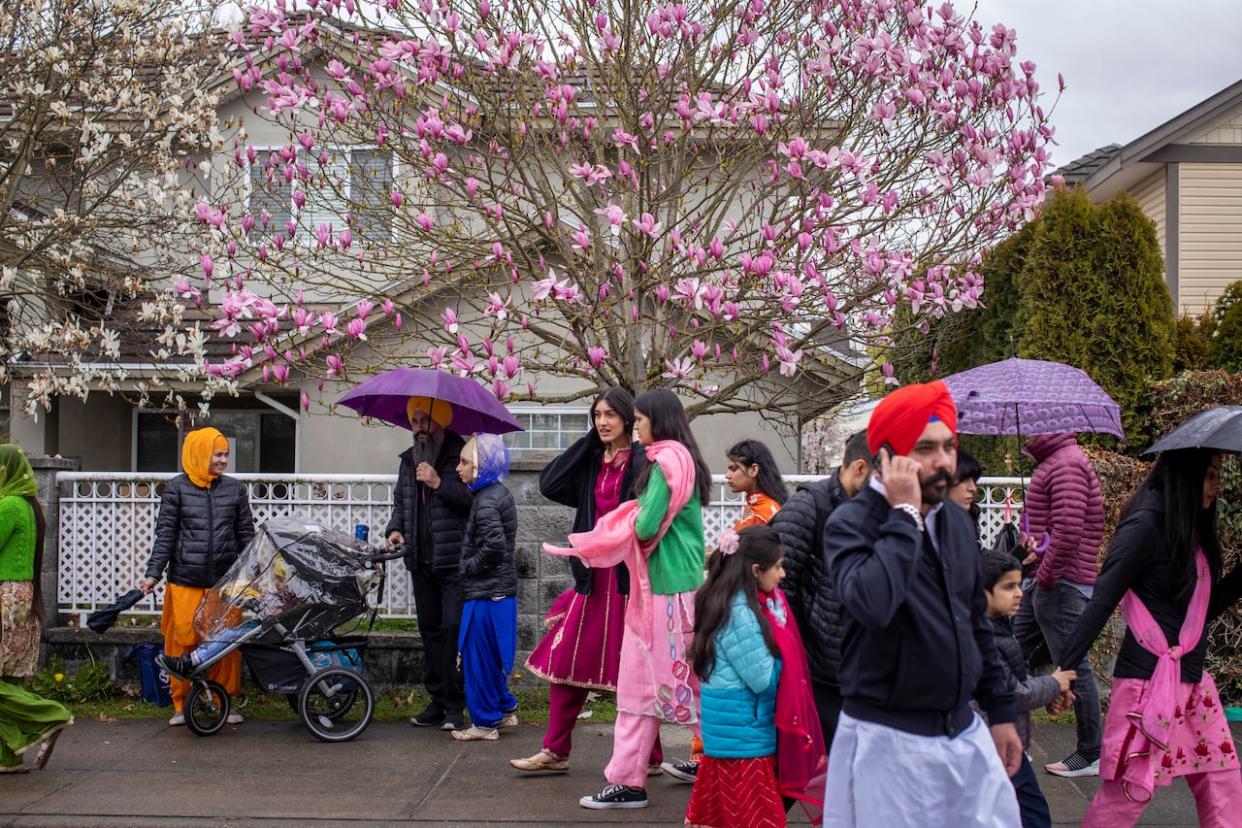South Asian community advocacy group pushes for dedicated museum

A group representing people of South Asian descent in B.C. are coming together Tuesday evening to push for the creation of a museum dedicated to the community — a project that hasn't seen much progress in four years and has failed to effectively consult with various communities, according to one community advocate.
"We expected movement along the way at some level and what happened was the exact opposite," said Sharanjit Kaur Sandhra, a member of the Museum Liberation Force (MLF) and a professor at the University of the Fraser Valley.
She said after the museum was initially announced, only one consultation took place in April 2023 that led to "a lot of pushback and criticism" about its placeholder name as the South Asian Museum.
Sandhra said the name doesn't adequately capture the diverse communities of people with South Asian heritage, including those from countries or communities not directly in southern Asia, such as Fiji and Guyana.
"I have relationships with many different people who would fall under the umbrella of South Asian, but that doesn't mean … that the placeholder name should put us under that umbrella," she said
"In four years nothing else was done to engage with the multiplicities of communities ... [and] the complexities of the word 'South Asian Canadian.'"
The B.C. NDP announced the decision to "build the first-ever museum" honouring the province's South Asian communities as part of an election promise in 2020 — an election they went on to win with a large majority.
"The South Asian community has played a critical role in B.C.'s history, and it's time to recognize that contribution," said B.C. NDP MLA Jinny Sims in a October 2020 news release.
It was these frustrations and more, Sandhra said, that led her to resign from the province's Museum Advisory Committee in December, and inspired the creation of the MLF, a group formed to facilitate action and accountability for the museum's creation.
Their first event, called "Where is Our Museum?" is a panel discussion on the evening of April 2, featuring Sandhra and other MLF members to discuss goals for the museum and to answer questions from the community at Surrey City Hall.
"We're always desperate for this idea of a seat at the table," Sandhra said.
"But at some point, if that seat at the table is treating you that badly, we'll go make our own event."
'We are the subject'
In an open letter on Instagram, the MLF said a museum dedicated to B.C.'s South Asian communities was long overdue, but that the ministry of tourism, arts, culture and sport failed to build relationships with communities.
"We are the subject, we are the source, we are the people, we are the descendants, and we will be the ancestors that have to answer to this work," reads the letter.
"The only way this museum works is if this is in the hands of the community."

Sharanjit Kaur Sandhra says little has been done 'to engage with the multiplicities of communities ... [and] the complexities of the word 'South Asian Canadian'' in relation to the museum project. (University of the Fraser Valley)
Sandhra says ministry staff, who led Museum Advisory Committee meetings, often weren't South Asian themselves and had a lack of empathy for the process and participants.
"It is really just a tick-box approach to wanting to get things over and done with before fiscal end. And I felt that the entire time," Sandhra said.
"We're being told to just hop over it and move on to the next phase to appease a government. That's what's frustrating to me."
In an emailed statement to CBC News, the Ministry of Tourism, Arts, Culture and Sport announced a second phase of engagement, including community-led discussions, an online survey, and the opportunity to share written or video input.
It says an average museum can take up to eight years to establish and while "nothing has been decided yet," the final vision for the museum will be "shaped by the input received from interested and impacted people throughout B.C."
"Communities of South Asian heritages have expressed a need for a museum or cultural centre that brings together artifacts, documents, and stories, and the government has responded by committing to work with affected communities to advance proposals for a museum focusing on the histories, cultures and contributions of Canadians of South Asian descent," the statement said.
"During the engagement, individuals and communities will be able to provide input into the name, location, and vision for this museum or cultural centre."
The ministry notes that members of the Ministerial Advisory, who guide the project's engagement design and planning, were chosen for their experiences in community-led engagement and for having lived experiences from South Asian heritages.
According to a news release, the B.C. Museums Association was provided $500,000 to organize inclusive discussions and $5,000-grants were being provided for organizations conducting engagement.
A report from the ministry will be published in late 2024 summarizing key recommendations.

 Yahoo News
Yahoo News 
